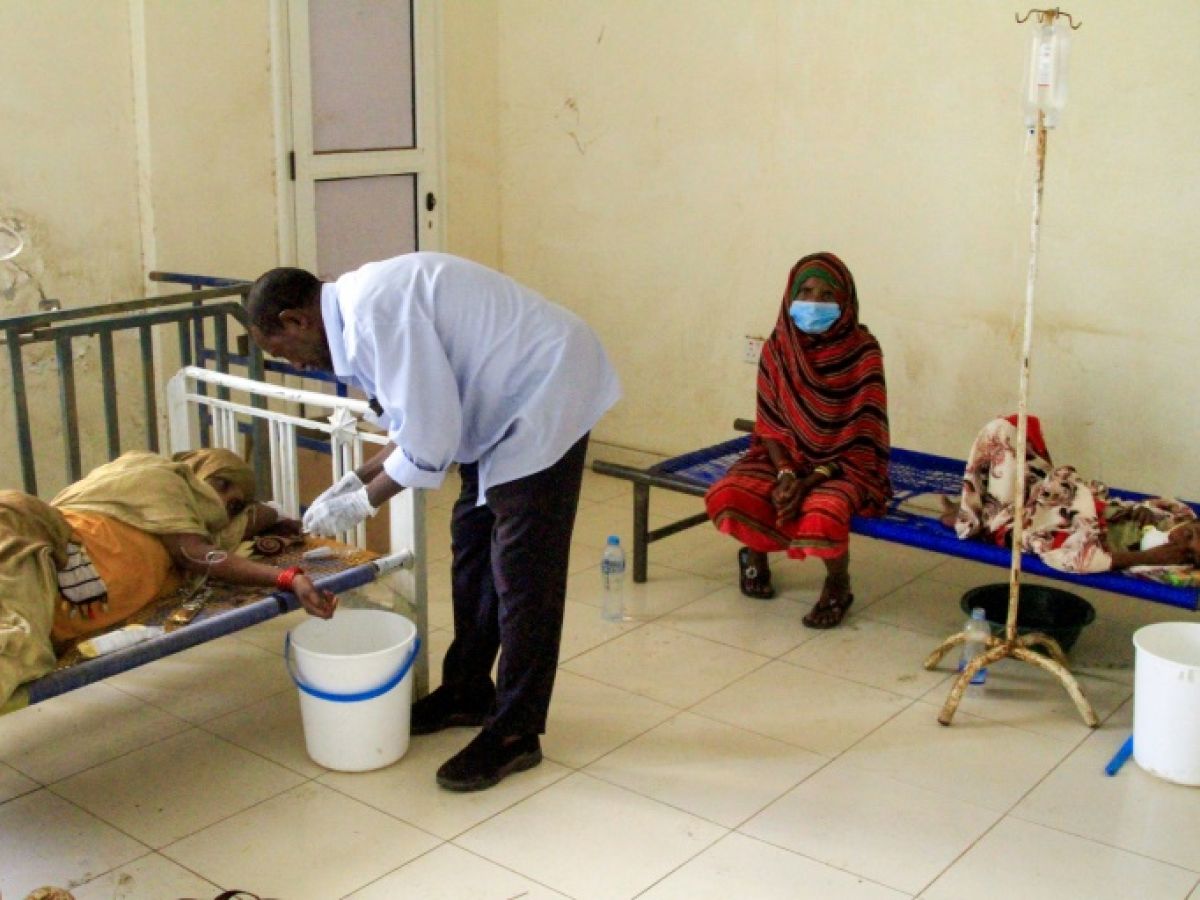"I have severe diarrhoea," whispers Aicha Mohammed, lying on a small bed in the hospital of Wad al-Hulaywah, in the south-east of Sudan, which is facing a cholera epidemic with a health system ravaged by sixteen months of war.
This forty-year-old, originally from Wad al-Hulaywah, a town located on the border of the states of Kassala and Gedaref, close to Ethiopia and Eritrea, is on a drip to relieve her cholera symptoms.
The Ministry of Health, which announced an epidemic of the disease in the country last week, reported 556 confirmed cases of cholera on Tuesday, including 27 deaths.

The states of Kassala and Gedaref are particularly affected, said the minister, Haitham Ibrahim.
In the farming town of Wad al-Hulaywah, "the first cases started arriving at the hospital on July 24," Adam Ali, a local health official, told AFP.
"There are 150 cases so far, including seven deaths," he said.
Mr Ibrahim said the epidemic was caused by "climatic conditions and contamination of drinking water".
Before the war, the UN was already warning about the fate of 40% of the country's 48 million inhabitants who do not have access to drinking water.
– “Flies and polluted water” –
"Our problem is drinking water, 69% of the local residents drink water directly from the river, which is polluted," confirms Mr. Ali, referring to the Setit River, which crosses Wad al-Hulaywah and has its source in Ethiopia.
During the rainy season, he explains, this waterway carries large quantities of silt, which increases pollution levels.
And for several weeks, Sudan has been hit by torrential rains, displacing thousands of people and bringing with it a host of diseases.

It is these rains and the floods they cause that have caused cholera to resurge in a country where the World Health Organization (WHO) has counted "11,327 cases, including 316 deaths" since June 2023, its spokesperson, Margaret Harris, told journalists on Friday.
Cholera is an acute diarrheal infection, caused by the ingestion of contaminated food or water, causing severe dehydration that can lead to death within hours.
Outside Wad al-Hulaywah hospital, workers spray insecticides to combat flies that swarm and can spread disease, but Ali says the problem lies in the lack of sanitation controls.
"Entire villages have been displaced following the construction of the dam, their inhabitants have dug makeshift latrines, they attract flies due to lack of maintenance," he adds, referring to the dam built in 2015 by the authorities to hold back the waters of the Setit River.
In Sudan, a war has been raging since April 2023 between the army, led by General Abdel Fattah al-Burhane, and the paramilitaries of the Rapid Support Forces (RSF) of his former deputy, General Mohamed Hamdane Daglo.
– “Worried and scared” –
In a country divided between areas controlled by the army and the FSR, the question of access to healthcare also arises.
Large swathes of al-Jazeera and Khartoum states, where the health ministry has warned of the spread of cholera, are thus under the control of paramilitaries, effectively escaping the control of government health authorities.

Both sides have been accused of war crimes, including indiscriminate bombing of populated areas, in the conflict that has killed tens of thousands and displaced more than 10 million people, according to the UN.
They have also been accused of looting and obstructing humanitarian aid, as well as nearly destroying an already fragile health system, with more than 701,000 hospitals now out of service, according to the United Nations.
In a country plunged, according to the UN, into "one of the worst humanitarian crises in recent memory", the vast majority of humanitarian operations have been interrupted.
The inhabitants can often only count on themselves.
Like Hassan al-Junaid, 49, sitting in front of Kassala hospital: "We were moved from al-Jazeera state to Kassala, we live in very bad conditions, which caused my sister to get infected."
"I am alone with her, but I cannot accompany her inside because she is in quarantine," he explained to AFP.
"So I stay here, worried about her and scared of being infected too, because if that happens, I won't have anyone to buy the necessary medication."


